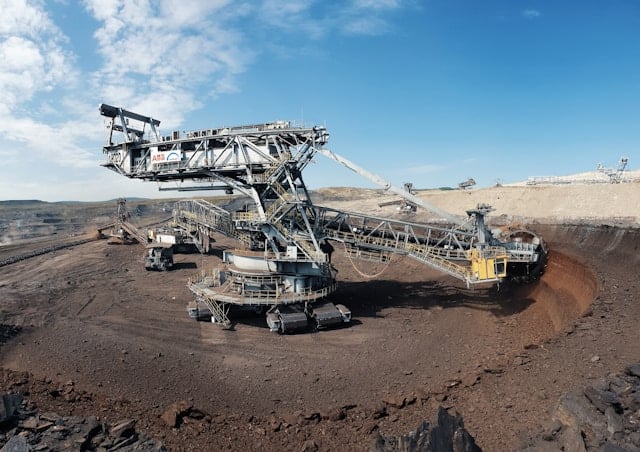What Is the Potential of Deep Sea Mining for Rare Earth Elements in the UK?

The international race to secure future supplies of critical minerals has taken a dramatic turn. The spotlight is now on deep sea mining, and the potential it offers for sourcing these key materials. In the UK, the ocean floor may hold untold riches in the form of highly sought-after metals and minerals, presenting a tantalizing prospect for both the energy and mining sectors. Let’s dive deeper into the subject.
A New Frontier in Mining
As land-based deposits become increasingly depleted and harder to access, the gaze of global industry is turning towards the ocean’s depths. The deep sea, extending from the seabed to depths of 6,000 meters, houses an estimated 16 billion tons of nodules rich in manganese, copper, cobalt, nickel and other crucial minerals. These nodules are small lumps of rock and sediment that lie scattered across the ocean floor. Each one is a potential source of material for the burgeoning renewable energy sector and other high-tech industries.
Lire également : What Are the Challenges and Opportunities in UK’s Transition to Cashless Transactions?
Deep sea mining involves the extraction of these mineral-rich nodules from the ocean floor. The technology for this process is still in its infancy, but it’s developing rapidly. The process could potentially yield vast amounts of rare earth metals, which are critical to the manufacture of everything from cell phones and wind turbines to electric vehicles and batteries.
The UK’s Stake in Deep Sea Mining
The global interest in deep sea mining has not gone unnoticed in the UK. The British government has been exploring ways to tap into this potential mineral wealth. The International Seabed Authority (ISA), a body set up by the United Nations to regulate deep sea mining activities, has granted exploration contracts to UK Seabed Resources, a subsidiary of global defense company Lockheed Martin.
A lire également : How to Create a Low-Budget, High-Impact Marketing Campaign for UK Small Businesses?
This exploratory phase is crucial for assessing the size and quality of mineral deposits. If these are deemed sufficient, the UK could potentially start mining operations in the deep sea within the next decade. The minerals extracted could then be used to support the country’s renewable energy efforts and its transition to a low-carbon economy.
Environmental Concerns and Safeguards
The potential of deep sea mining is undeniably exciting. However, it does not come without its share of environmental concerns. The deep ocean is a largely unexplored, fragile ecosystem. Disturbances caused by mining could potentially harm marine species, some of which are yet to be discovered. There are also concerns about the release of toxic elements and the creation of sediment plumes, which could affect marine life and water quality.
To mitigate these environmental risks, the ISA has been tasked with setting up a regulatory framework for deep sea mining. This includes crafting rules and standards for mining operations to ensure minimal environmental impact. It’s a challenging balancing act between harnessing the potential of deep sea mining and safeguarding the health of our marine ecosystems.
The Global Perspective
The UK is not the only country eyeing the potential of deep sea mining. Many nations, including China, Belgium, and Germany, have also been granted exploration contracts by the ISA. This is a clear indication of the global interest in this new frontier of mineral extraction.
The international competition is heating up, and the UK will need to navigate this complex and rapidly evolving landscape. It will need to secure its place in the global supply chain of these critical minerals, while also taking care to preserve marine environments.
As we look to the future, it’s clear that deep sea mining could play a pivotal role in meeting the global demand for critical minerals. It’s a complex issue, with many factors to consider, but the potential rewards are significant. The UK, with its rich maritime history and advanced offshore engineering capabilities, is well-positioned to become a key player in this exciting new frontier of mining. Despite the challenges ahead, the deep sea could well prove to be the UK’s next big resource boom.
The Technical Challenges and Prospects
Deep sea mining, as with any frontier technology, comes with its fair share of technical challenges. The immense depth and pressure at the bottom of the ocean, combined with the extreme cold and darkness, make mining operations a considerable engineering feat. Moreover, the extraction of mineral-rich nodules known as polymetallic nodules from the seabed involves complex machinery and infrastructure, presenting additional complexities.
Despite these challenges, the UK’s strong background in offshore engineering and subsea operations could play a pivotal role in overcoming them. There is a wealth of experience within the UK’s maritime and energy sectors, which could be repurposed to pioneer innovative solutions for deep sea mining. Additionally, advancements in robotics and autonomous underwater vehicles (AUVs) have opened up new possibilities for exploring and exploiting the deep seabed.
In the context of the circular economy, deep sea mining could potentially offer a more sustainable way to source critical minerals. Polymetallic nodules offer an abundance of these rare earth elements and other critical minerals, without the need for destructive mining practices. By reducing the dependence on traditional, land-based mining, deep sea mining could help to create more sustainable and resilient supply chains.
This is particularly important for the energy transition, as clean energy technologies often require large amounts of critical minerals. By providing a new source of these materials, deep sea mining could help to support the UK’s transition to a low-carbon future.
Conclusion: Balancing Economic Potential and Environmental Responsibility
The prospect of mining the ocean floor for precious minerals presents a tantalising intersection of opportunity and challenge for the UK. On one hand, it offers a potentially abundant source of critical minerals that are vital for modern industries and clean energy technologies. On the other hand, it raises important questions about the environmental impact and the need to protect fragile marine ecosystems.
The key will be in finding the right balance. Careful regulation, guided by robust scientific research, will be needed to ensure that any seabed mining activities are conducted responsibly. This will include enforcing strict environmental standards, conducting thorough impact assessments, and putting in place strong safeguards to protect marine life.
The UK, with its strong maritime heritage and expertise in offshore engineering, is well-placed to take a leading role in this emerging field. However, it will need to navigate carefully, balancing the economic promise of deep sea mining with its environmental responsibilities.
Deep sea mining could well be the next big resource boom for the UK, providing crucial supplies of rare earth elements and other critical minerals. But as we reach for these treasures on the ocean floor, we must not lose sight of the need to preserve the health of our oceans. The bounty of the deep sea could be a boon for our economy and our energy transition, but it must not come at the expense of our marine ecosystems.
